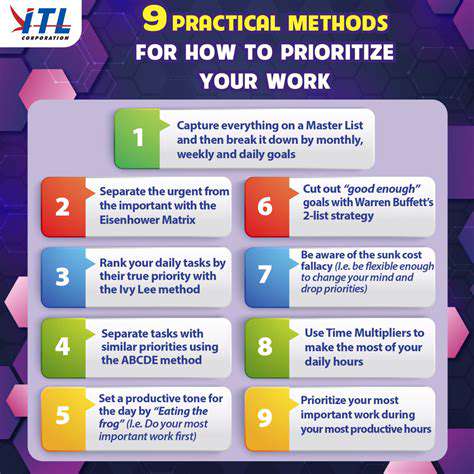Staying Active and Happy: The Joy of Gardening in Older Age
Connecting with Nature
Gardening offers a profound connection with nature, a vital aspect for seniors seeking to maintain their well-being. Spending time outdoors in a garden, surrounded by the sights, sounds, and scents of nature, can have a deeply restorative effect on the mind and body. The rhythmic motions of planting, weeding, and harvesting can be incredibly therapeutic, grounding individuals in the present moment and fostering a sense of accomplishment and purpose.
The beauty and tranquility of a garden can also be a source of immense joy and relaxation. Observing the growth of plants, witnessing the transformation of seeds into flowers and fruits, and experiencing the changing seasons within a garden space can be incredibly fulfilling, providing a sense of peace and connection to something larger than oneself.
Physical Activity and Mobility
Gardening provides a gentle yet effective form of physical activity, which is crucial for maintaining mobility and strength in seniors. Tasks like digging, planting, and weeding engage various muscle groups, promoting strength and flexibility. The controlled movements involved in gardening can also improve balance and coordination, reducing the risk of falls. Even simple tasks like carrying watering cans or transporting tools can contribute to improved physical fitness.
The physical activity involved in gardening can also help seniors manage their weight and maintain healthy cardiovascular function. These benefits are not only physical, but also contribute to increased energy levels and a greater sense of overall well-being.
Mental Stimulation and Cognitive Benefits
Gardening can be a fantastic mental workout, stimulating cognitive function and memory. Planning a garden layout, selecting plants, and tracking their growth requires attention to detail and problem-solving skills. The process of nurturing plants and observing their development can also be a source of mindfulness, encouraging focus and reducing stress.
The social aspects of gardening can also contribute to improved mental well-being. Sharing gardening knowledge, tips, and experiences with others can foster social connections and reduce feelings of isolation. Participating in community garden projects can also provide a sense of belonging and purpose, further enhancing mental well-being.
Stress Reduction and Emotional Well-being
The therapeutic properties of gardening extend beyond the physical and cognitive realms. Spending time in a garden can be incredibly calming and stress-reducing. The act of nurturing plants, the fresh air, and the beauty of nature can all contribute to a sense of peace and tranquility. Engaging in gardening activities can help seniors manage stress and improve their emotional well-being, fostering positive feelings and a more positive outlook.
Social Interaction and Community Building
Community gardens offer a unique opportunity for social interaction and connection. Working alongside others, sharing knowledge, and collaborating on garden projects can foster a strong sense of community and belonging. These interactions can help combat feelings of isolation and loneliness, crucial for seniors' overall well-being. Sharing experiences and tips with fellow gardeners can create a supportive network, enriching the lives of all participants.
The sense of community fostered in a shared gardening space can be remarkably beneficial for seniors, providing a platform for social interaction and reducing feelings of isolation. This social interaction can lead to improved mental health and overall well-being, making gardening a valuable activity for promoting social connections in senior communities.
Mental Well-being: Stress Reduction and Cognitive Stimulation

Stress Management Techniques
Effective stress management is crucial for maintaining mental well-being. Proactive strategies can significantly reduce the negative impact of stress on your overall health and happiness. Identifying your stressors and developing coping mechanisms are key steps in this process. These techniques often involve a combination of lifestyle adjustments, relaxation exercises, and seeking support when needed. Learning to manage stress effectively allows you to navigate challenging situations with greater resilience and maintain a positive outlook on life, creating a foundation for better mental health.
Various relaxation techniques, such as deep breathing exercises and meditation, can effectively calm the mind and body, reducing stress levels. Engaging in regular physical activity, maintaining a balanced diet, and getting sufficient sleep are also vital components of a comprehensive stress management plan. These lifestyle adjustments contribute to overall well-being by promoting physical and mental restoration, which are essential for coping with stress.
Recognizing Stress Triggers
Understanding your stress triggers is a critical first step in developing effective coping strategies. Recognizing patterns in your daily life, such as specific situations, people, or events that consistently cause you stress, can help you anticipate and prepare for these challenges. By identifying these triggers, you can develop proactive strategies to minimize their impact and manage your reactions more effectively. This self-awareness is fundamental to creating a sustainable approach to stress reduction, allowing you to address the root causes of your stress and foster a more positive mindset.
Paying attention to your physical and emotional responses to different situations can help you pinpoint your triggers. Sometimes, the triggers might be subtle or unexpected, so it's important to be mindful of how you're feeling throughout the day. Keeping a journal to record your experiences and identify patterns can be a helpful tool in this process. This self-reflection is a vital aspect of understanding your personal stress responses and tailoring your coping mechanisms to your unique needs.
Seeking Support and Resources
Reaching out to others for support is an essential part of managing stress effectively. Talking to friends, family, or a therapist about your concerns can provide valuable perspectives and practical strategies for coping with stress. Support systems are vital in providing emotional assistance and practical advice during difficult times. Connecting with others who understand what you're going through can offer encouragement and a sense of belonging, making you feel less isolated and more capable of navigating challenging situations.
Utilizing available resources, such as support groups or online communities, can offer additional avenues for connecting with others facing similar challenges. These resources can provide access to a network of individuals who can offer emotional support, shared experiences, and practical advice based on their own journeys. Seeking professional guidance from a therapist or counselor can provide personalized strategies and coping mechanisms tailored to your specific needs. They can offer valuable insights and tools to manage stress in a way that effectively addresses the root causes of your struggles.
Creating Your Own Oasis: Designing a Garden for Senior Needs
Prioritizing Accessibility
Designing a garden for seniors requires careful consideration of accessibility. Smooth, paved pathways are crucial for easy movement, preventing tripping hazards. Ramps or gently sloping walkways are essential for wheelchair users or those with mobility limitations. Consider the placement of seating areas, ensuring they are conveniently located near water features or other points of interest and are sturdy enough to support a person's weight.
Raised garden beds are also a great option, eliminating the need to bend or stoop for planting and harvesting. Choosing materials that are easy to clean and maintain is also important for the longevity of the garden and the convenience of the senior gardener.
Planting for Ease of Maintenance
Selecting plants that require minimal maintenance is key to a senior-friendly garden. Choose drought-tolerant species to reduce watering needs and consider low-growing shrubs and groundcovers that minimize the need for trimming and upkeep. Attractive options might include native plants that require less attention and thrive in the local climate.
Consider plants that have visual appeal year-round, featuring colorful blooms, interesting textures, and attractive foliage. Easy-to-harvest herbs and vegetables are also excellent additions, providing fresh produce and a sense of accomplishment.
Enhancing Sensory Experiences
A senior-friendly garden should offer a variety of sensory experiences. Incorporating fragrant flowers, such as lavender or roses, can stimulate the sense of smell. Adding a water feature, such as a small fountain or birdbath, can create a calming soundscape and a visual delight. Soft lighting, like pathway lighting, can enhance visibility and safety, especially during twilight hours.
Creating a Social Hub
Designing a garden that fosters social interaction is important for seniors' well-being. Include seating areas, such as benches or a pergola, where seniors can relax and engage with others. Consider a central gathering spot, perhaps a patio or a gazebo, where they can enjoy meals, conversations, and activities. This social aspect of the garden is vital for fostering a sense of community and belonging.
Incorporating Safety Features
Safety is paramount in any garden design, especially one tailored for seniors. Ensure adequate lighting throughout the garden, particularly in pathways and around seating areas. Install sturdy handrails or supports along walkways and steps to provide stability and prevent falls. Choose non-slip surfaces for walkways and patios to minimize the risk of accidents.
Consider adding strategically placed grab bars in areas where seniors might need additional support. These safety measures will ensure a comfortable and secure environment for seniors to enjoy their garden.
Maintaining a Healthy Environment
A healthy garden environment is essential for both the plants and the seniors who enjoy it. Ensure proper drainage to prevent waterlogging, which can damage plants and create a breeding ground for pests. Maintain appropriate soil conditions to encourage optimal plant growth. Regular weeding and pest control are also necessary for a thriving garden.
Implementing a composting system can improve the soil quality and reduce the need for chemical fertilizers. By prioritizing a healthy environment, the garden can provide a relaxing and productive space for years to come.











